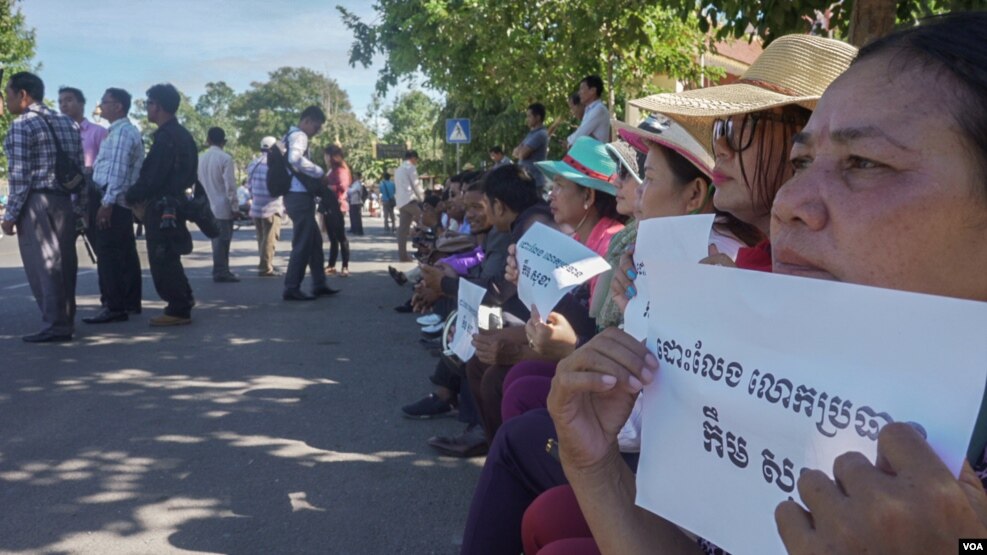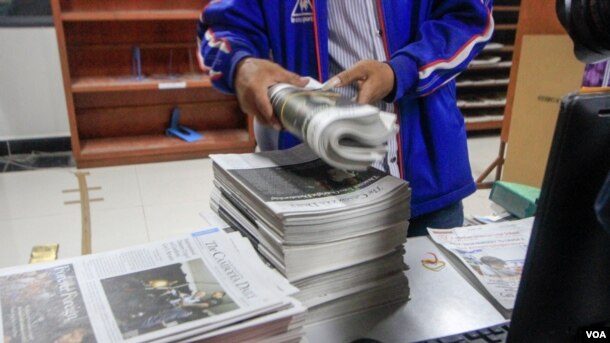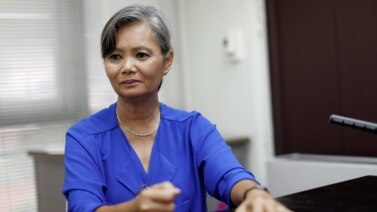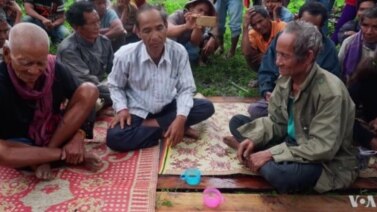
A group of 55 non-governmental organizations published a letter Monday calling for a new Paris Peace Conference because of a “severe deterioration in the state of human rights and democracy” in Cambodia.
The letter was released on the 26th anniversary of the Paris Peace agreements that ended conflict in the Southeast Asian country.
The NGOs called on United Nations General Secretary Antonio Guterres, Indonesian President Joko Widodo, and French President Emmanuel Macron to take “decisive action.”
The agreements ended war between Cambodia and Vietnam in 1991. They permitted the United Nations to control Cambodia’s government as the country created a system of democratic elections.
The letter noted that countries that signed the accord are required to consult with members of the Paris Conference if the agreements are not being upheld.
The NGOs wrote, “We respectfully submit that your obligation to take concrete action under the Paris Peace Agreements has now been triggered as a result of the severe deterioration in the state of human rights and democracy in Cambodia in recent weeks and months.”
Last month, Cambodian police arrested opposition Cambodia National Rescue Party (CNRP) chief Kem Sokha. They charged him with treason. They said he was working with the United States to overthrow the ruling Cambodian People’s Party (CPP).
Critics say the arrest shows Prime Minister Hun Sen strengthening his attacks on political opponents as the country prepares for a national election next July.
Since Kem Sokha’s arrest, about 20 CNRP lawmakers, along with deputy presidents Mu Sochua and Eng Chhay Eang and party activists, have fled Cambodia.
Hun Sen has threatened to shut down the opposition and give its seats in parliament and its commune councilor positions to parties that support the government.
Since August, the government has expelled the U.S.-funded NGO the National Democratic Institute (NDI) and suspended the operations of 20 radio stations that broadcast reports and programs by U.S. broadcasters Radio Free Asia and Voice of America. It also told the English-language Cambodia Daily newspaper that it must pay a large tax. The newspaper was forced to close.

In the letter, the 55 NGOs said that unless things change, the vote next year “has no chance of legitimacy.”
They called for the Paris Conference to meet again “for an emergency summit to discuss the state of Cambodian democracy” and ways to convince Cambodia’s government to change its policies.
Phil Robertson is the deputy Asia director of Human Rights Watch. He released a statement that was added to the letter. He noted that the United States, the United Nations and international groups have spent billions of dollars to support Cambodia’s democratic development. He said it is concerning that the international community has remained largely silent about the actions of Hun Sen.
He urged the nations that signed the Paris agreements to “stop Hun Sen from making his destruction of democracy and disregard for human rights the new normal for Cambodia.”
Prison letter
CNRP chief Kem Sokha wrote a letter from prison that was published Monday on his Facebook page. He said he supported the calls for signatories of the Peace Accords to gather for an urgent meeting about Cambodia. He said his country’s government “has been marching against the spirit of the Paris Peace Accords.”
The CNRP leader added that “issuing statements alone is not enough,” and urged members of the international community to “take actual measures” to prevent the government from “victimizing” the Cambodian people.
Hun Sen reacts
Hun Sen has dismissed suggestions that his government had violated the Peace Accords. The prime minister said that calling for the signatories of the agreement to meet again was “outdated and cannot be realized” because four Cambodian political parties that were present at the time “would have to be recreated.”
He said, “now there is only a single Cambodian [political] party and that is my legitimate government here.”
I’m Kaveh Razaei.
And I’m Dorothy Gundy.
This story was reported by Radio Free Asia’s Khmer Service. It was translated by Sovannarith Keo and written in English by Joshua Lipes. Christopher Jones-Cruise adapted the report for Learning English. Ashley Thompson was the editor.
We want to hear from you. Write to us in the Comments Section, or visit our Facebook page.
Words in This Story
deterioration - n. the action or process of breaking down; becoming worse
consult - v. to advise
submit - v. to propose; to put forward
concrete - adj. identifying something real or a group of things
trigger - v. to release or cause
legitimacy - n. the quality of being lawful or rightful
summit - n. a meeting or conference
convince - v. to persuade
signatory - n. a nation, organization or person that has signed an official document


